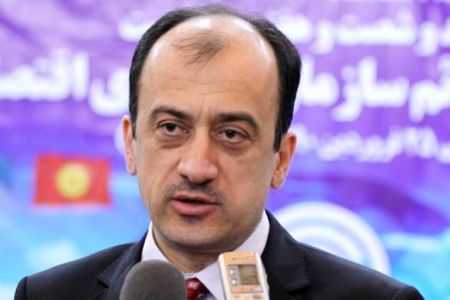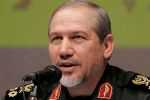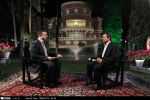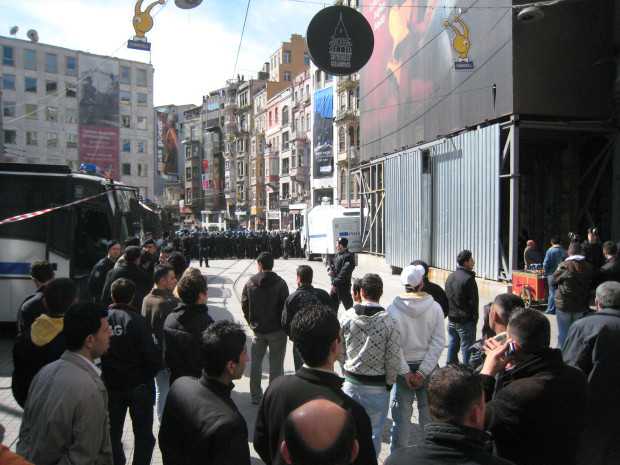Court to determine Yousef Nadarkhani’s fate in the coming week.
 ISTANBUL, September 28 (CDN) — Pastor Yousef Nadarkhani refused to recant his Christian faith today at the fourth and final court hearing in Iran to appeal his death sentence for apostasy (leaving Islam).
ISTANBUL, September 28 (CDN) — Pastor Yousef Nadarkhani refused to recant his Christian faith today at the fourth and final court hearing in Iran to appeal his death sentence for apostasy (leaving Islam).
The court house in Rasht, 243 kilometers (151 miles) northwest of Tehran, has swarmed with security forces for four consecutive days since Sunday (Sept. 25), the first day of his four appeal hearings. Applying sharia (Islamic law), the court on Monday, Tuesday and today gave Nadarkhani, 35, three chances to recant Christianity and return to Islam in order for his life to be spared. In all instances, Nadarkhani refused to recant.
“I’m in contact with Iran,” a source close to Nadarkhani’s family said, “but the news isn’t very good. We’ll see. If they really want to they can kill him they can, because he hasn’t renounced his faith. It finished today. We have left everything in the hands of God.”
Authorities arrested Nadarkhani in his home city of Rasht in Oct. 2009 because he allegedly questioned obligatory religion classes in Iranian schools. In September 2010 the court of appeals in Rasht found him guilty of apostasy and in November issued a written confirmation of his charges and death sentence.
At an appeal hearing in June, the Supreme Court of Iran upheld Nadarkhani’s sentence but asked the court in Rasht to determine if he was a practicing Muslim before his conversion. The Supreme Court also determined that his death sentence could be annulled if he recanted his faith.
On Sunday (Sept. 25) in the first two and a half hours of the court, the judges determined that Nadarkhani indeed was not a practicing Muslim before his conversion to Christianity. The source said that in this time period things looked more promising for Nadarkhani, and that the court might reverse the sentence based on the findings.
In the end, however, the court declared that although Nadarkhani was not a practicing Muslim before his conversion, he was still guilty of apostasy due to his Muslim ancestry, the source told Compass.
Secret service agents surrounded the court and maintained a presence there throughout the following days, and his wife, Tina, was not allowed in the courtroom. On Sunday (Sept. 25), she was allowed to stand at the doorway for a few minutes to see her husband, the source said.
A defense lawyer told Nadarkhani’s family and friends there is a way to take the case back to the Supreme Court or extend Nadarkhani’s prison sentence, but the source said the directives of the Supreme Court were clear and he didn’t think there was much hope.
“Yousef is known as a hero, so if he is released it will seem like the government was defeated,” he said, “but if they leave him in prison there could be more international pressure.”
It is critical for foreign governments to negotiate and engage in diplomacy with Iranian authorities about Nadarkhani’s case, the source said, adding that his predicament could be more hopeful if they intervened.
“They need to start negotiating,” the source said. “It’s the moment to negotiate, because if they do, the situation could be regulated.”
The source and advocates in the international community fear that authorities may kill Nadarkhani as early as midnight tonight or any time in the coming week. The court said a verdict on Nadarkhani would be issued within the next week.
“They probably won’t kill him today, but they can do it whenever they want,” the source said. “They can hang him in the middle of the night or in 10 days. Sometimes in Iran they call the family and deliver the body with the verdict. They have gone outside the borders of law. This is not in the Iranian law, this is sharia. Sometimes they don’t even give the body.”
The final appeals hearing today lasted about an hour and a half, ending around 1 p.m. after Nadarkhani’s defense lawyer, Mohammad Ali Dadkhah, gave his closing defense. Dadkhah also reportedly faces charges for “actions and propaganda against the Islamic regime,” due to his human rights activities.
The hearings on Monday (Sept. 26) and yesterday lasted just 30 minutes, long enough for Nadarkhani to refuse to recant Christianity.
The source said Nadarkhani’s 30-year-old wife is very apprehensive about what the courts might decide this week. They have two children: Joel, 7 and Daniel, 9.
“The wife is under depression and worried; we can say his wife is very worried,” he said. “It is difficult for all his family, it is difficult for us.”
Nadarkhani, whose first name is also spelled Youcef, belongs to the Church of Iran, a group that has been marginalized by other Christian Iranian groups over concerns that its doctrine on the Trinity is inadequate.
The Church of Iran’s statement of faith on its website asserts that God is “revealed in the Scriptures as Father, Son and Holy Spirit (Matthew 3:16-17, 28:19).”
The church’s statement of faith also affirms “…the Lordship of Jesus Christ, only Son of God, the Word manifested in flesh. We believe that He is from the Holy Spirit (Matt. 1:20) and He was born of a Virgin Mary (Matt. 1:23, Luke 1:34). We believe in His atoning death and redemption (Heb. 9:28), in His bodily resurrection (Luke 24:39), in His ascension (Acts 1:9-11), on His return in person to gather His Church (1 Thess. 4:17), followed by His coming in glory to judge the rebels and establish the reign of a thousand years (Rev. 1:7). ”
The church also states that it believes the “baptism of the Holy Spirit (Matt. 3:11; Mark 1:8; Luke 3:16; John 1:33; Acts 1:5, 2:38) is the new birth (John 3:5-8). It introduces the Christian in the Eternal Life of God and leads into all truth, to holiness in communion with Christ.”






